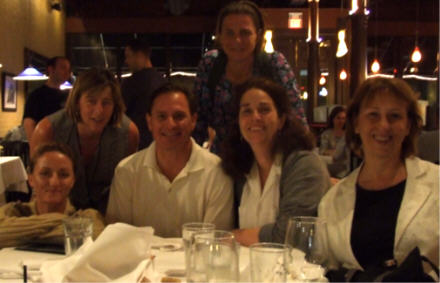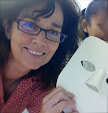It is Friday and I leave tomorrow to go to New Orleans. My students and I are very excited. My challenge to my second grade students was to think of themselves as scientists going on this expedition. What questions would they ask themselves before they leave?
They came up with some wonderful questions.
Skyler wonders. Do scientists ever eat caterpillars to see if they taste bad? Is one of the natural defenses that they taste bad?
From James: What do we do with caterpillars after we collect them?
Jaylen asks: If we want to understand why caterpillars don't eat some plants, what do we do? How do you look inside a plant?
To my class: keep sending me questions. I did not write all your questions. Ask Ms. Monteverde to help you post your questions. You can also ask me questions when I call you on the computer
To prepare for this trip, we did many activities. We created diversity collages; we developed our understanding of how although people have differences, our similarities are greater. We are one species. Then we looked at other creatures, including butterflies and moths, to understand why they are different species not just different sizes or colors. We looked at what they eat and how they might protect themselves. We had fun pantomiming different scenarios, e.g. a bird spitting out an insect.
To understand the role of carbon dioxide and climate change, we played a game with a ball pretending we were either a plant producing oxygen or a person, car, cow producing carbon dioxide. The idea is to quickly catch the ball and throw it back but pretty soon the trees and plants were overwhelmed.
I, too, am having trouble connecting my gabcast to my blog but go to gabcast.com and search Hunting for Caterpillars to hear me. If you have some advice on this issure, please post it to me.
They came up with some wonderful questions.
Skyler wonders. Do scientists ever eat caterpillars to see if they taste bad? Is one of the natural defenses that they taste bad?
From James: What do we do with caterpillars after we collect them?
Jaylen asks: If we want to understand why caterpillars don't eat some plants, what do we do? How do you look inside a plant?
To my class: keep sending me questions. I did not write all your questions. Ask Ms. Monteverde to help you post your questions. You can also ask me questions when I call you on the computer
To prepare for this trip, we did many activities. We created diversity collages; we developed our understanding of how although people have differences, our similarities are greater. We are one species. Then we looked at other creatures, including butterflies and moths, to understand why they are different species not just different sizes or colors. We looked at what they eat and how they might protect themselves. We had fun pantomiming different scenarios, e.g. a bird spitting out an insect.
To understand the role of carbon dioxide and climate change, we played a game with a ball pretending we were either a plant producing oxygen or a person, car, cow producing carbon dioxide. The idea is to quickly catch the ball and throw it back but pretty soon the trees and plants were overwhelmed.
I, too, am having trouble connecting my gabcast to my blog but go to gabcast.com and search Hunting for Caterpillars to hear me. If you have some advice on this issure, please post it to me.
In a month, I will be in New Orleans ready to participate in Hunting for Caterpillars. My blog will be the record of my experiences. I’m looking forward to working with the scientists and taking part in this scientific endeavor. This project revolves around efforts to document the diversity of caterpillars and their parasitoids. So I will be collecting caterpillars!
The scientists are also studying how different caterpillar defenses work against their natural enemies. They will use the knowledge they acquire to create possible alternatives to pesticides which cause environmental problems.
This investigation is part of a global effort to understand climate change. The project has already discovered a strong link between precipitation and parasitism. What might a warming earth mean for the future of butterflies and moths?
The scientists are also studying how different caterpillar defenses work against their natural enemies. They will use the knowledge they acquire to create possible alternatives to pesticides which cause environmental problems.
This investigation is part of a global effort to understand climate change. The project has already discovered a strong link between precipitation and parasitism. What might a warming earth mean for the future of butterflies and moths?
Subscribe to:
Posts (Atom)











